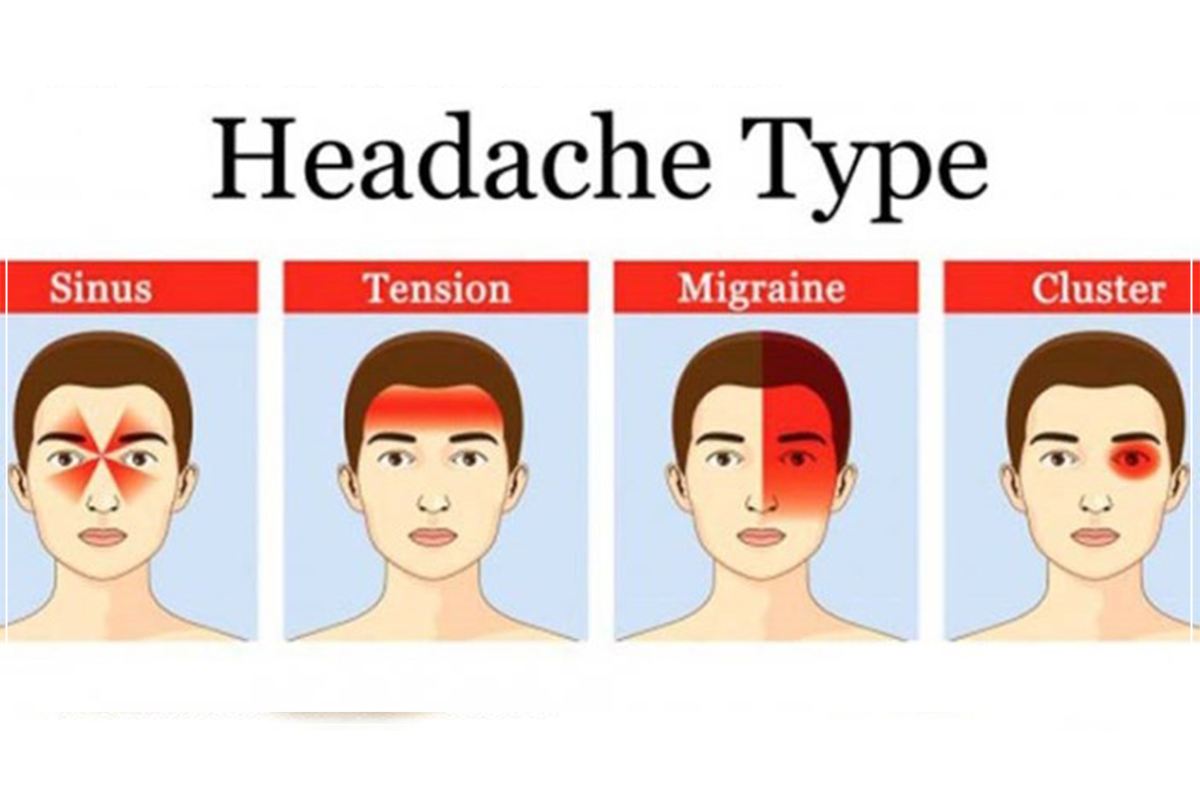What To Do When You Have A Headache - Headaches can be a real pain in the head, literally! If you suffer from headaches, you know how difficult it can be to concentrate, work, or even just relax. Different types of headaches can have different symptoms and causes, making it important to understand what type of headache you have in order to find the most effective treatment. Here are some tips, ideas and how to deal with headaches.
Symptoms and Types of Headaches
Migraines:
Migraines are characterized by a pounding, pulsating pain on one side of the head, usually accompanied by nausea, vomiting and sensitivity to light and noise.

Tension Headaches:
Tension headaches can be felt as a pressure, like a tight band around the head. They are caused by muscle tension and stress, and can be triggered by poor posture.

Cluster Headaches:
Cluster headaches are rare, but extremely painful. They typically occur in cycles, lasting several weeks or months, and are characterized by severe pain around one eye, along with eye watering and nasal congestion.

Tips for Managing Headaches
Natural remedies:
There are several natural remedies that can help reduce headache pain. These include drinking plenty of water, applying a cold or hot compress to the affected area, getting enough sleep and exercise, and practicing relaxation techniques such as meditation or deep breathing.
Over-the-counter medication:
Over-the-counter pain medication such as aspirin, ibuprofen, or acetaminophen may help relieve headache pain. Be sure to follow the recommended dosage, and speak to your doctor about any potential side effects or drug interactions.
Prescription medication:
If your headaches are severe or frequent, your doctor may prescribe medication such as triptans or ergotamines, which can help manage symptoms and prevent future headaches.
Lifestyle changes:
Changing certain lifestyle factors, such as reducing stress, maintaining good posture, avoiding triggers such as caffeine or alcohol, and getting regular exercise and adequate sleep, can help reduce the frequency and severity of headaches.
How to Prevent Headaches
Keep a headache diary:
Keeping a record of your headaches, including when they occur, how long they last, and any potential triggers, can help you identify patterns and avoid triggers in the future.
Get enough sleep and exercise:
Getting enough rest and exercise can help reduce stress and prevent headaches. Aim for 7-8 hours of sleep per night, and try to engage in moderate exercise such as walking or yoga for at least 30 minutes per day.
Practice good posture:
Slouching or hunching over can put strain on the neck and shoulders, leading to tension headaches. Practice good posture by sitting up straight, aligning your ears with your shoulders, and keeping your feet flat on the ground.
Avoid triggers:
Certain foods and beverages, such as chocolate, caffeine, and alcohol, can trigger headaches in some people. Try to identify and avoid any potential triggers.
Reduce stress:
Stress is a common trigger for headaches. Try to reduce stress by practicing relaxation techniques such as deep breathing, meditation, or yoga. You may also want to consider talking to a therapist or counselor if stress is a major factor in your headaches.
In Summary
Headaches can be caused by a variety of factors, from muscle tension and stress to underlying medical conditions. It's important to identify the type of headache you have and work with your healthcare provider to develop an effective treatment plan. In addition to medication, natural remedies, and lifestyle changes, keeping a headache diary and avoiding triggers can help prevent headaches from occurring in the first place. By taking the time to understand your headaches and proactively managing them, you can reduce their impact on your daily life and enjoy a greater sense of well-being.

Additional Tips to Manage Headaches
Stay hydrated:
Dehydration can cause headaches, so be sure to drink plenty of water throughout the day. You may also want to consider drinking herbal tea or coconut water, which can provide additional hydration and nutrients.
Take breaks from screen time:
Spending too much time staring at a computer, phone or tablet screen can cause eye strain and potentially trigger headaches. Take regular breaks to rest your eyes and stretch your neck and shoulders.
Consider complementary therapies:
Complementary therapies such as acupuncture, massage, and chiropractic care can help alleviate headache pain and prevent future headaches. Be sure to speak to your healthcare provider before trying any new therapies.
Don't ignore the pain:
Although headaches are often minor and can be treated at home, it's important to seek medical attention if you experience severe or unusual symptoms, such as sudden onset of a severe headache, confusion or loss of consciousness, weakness or numbness in the arms or legs, or fever.

Headaches can be a real pain in the head, but there are many strategies and treatments available to manage and prevent them. By taking a proactive approach to your headache management, you can enjoy improved quality of life and better overall health.
Find more articles about What To Do When You Have Headache